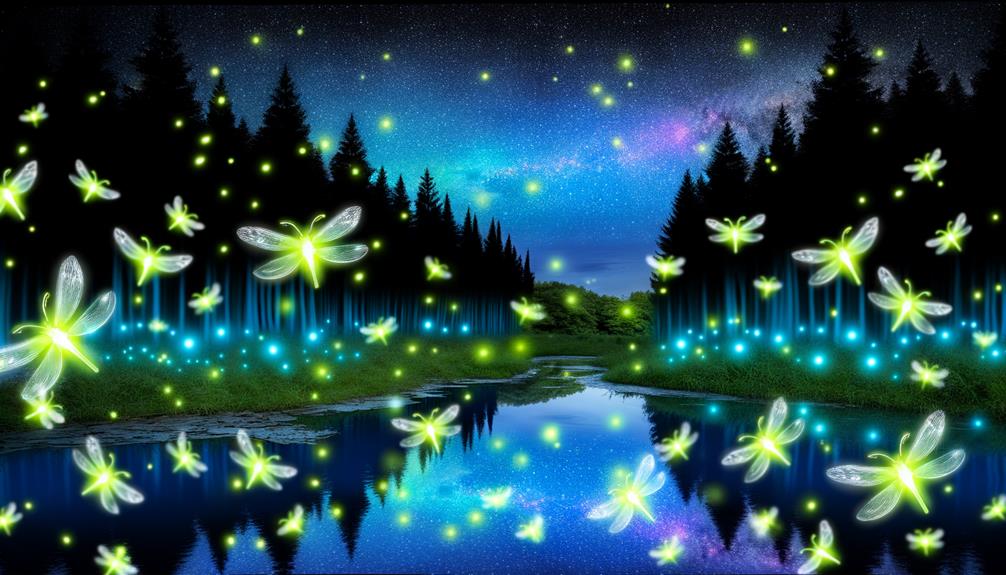Meaning of the Name Elora
The name Elora originates from diverse linguistic traditions, including Hebrew, Greek, and Celtic roots. In Hebrew, it combines 'El' (God) and 'Ora' (light), signifying divine illumination.
The Greek equivalent, 'Eliora,' conveys similar meanings of heavenly light. Meanwhile, the Celtic translation, 'crowned with laurel,' symbolizes honor and victory.
Historically, Elora has evolved, embracing nobility and spiritual symbolism across different cultures. Its presence in literature, art, and folklore adds to its allure, embodying beauty and mystique.
Although rare initially, its popularity has risen in recent decades, reflecting its timeless charm. Further exploration reveals the name's enduring appeal and dynamic nature.

Key Takeaways
- Elora means "light" and "divine illumination" from its Hebrew and Greek origins.
- The name symbolizes honor and victory, as derived from its Celtic roots.
- It reflects spirituality, enlightenment, and nobility across different cultures.
- Elora is associated with beauty, mystique, and ethereal imagery in literature and art.
- The name signifies creativity and imagination, with modern interpretations bridging diverse cultural heritages.
Etymology of Elora
Rooted in diverse linguistic traditions, the name Elora has etymological ties that span several cultures and languages.
In Hebrew, Elora is derived from 'El' meaning 'God' and 'Ora' meaning 'light,' together translating to 'God is my light.'
In Greek, the name aligns with 'Eliora,' which also signifies light and divine illumination.
The name finds resonance in Celtic origins as well, where it translates to 'crowned with laurel,' symbolizing honor and victory.
Each cultural context imbues the name Elora with rich connotations, reflecting a blend of spirituality, enlightenment, and nobility.
This multifaceted etymology highlights the name's universal appeal and depth, making it a meaningful choice across different cultural landscapes.
Historical Background
The historical background of the name Elora reveals its evolution and adaptation across various epochs and societies, illustrating its enduring significance.
Originating from ancient languages, the name Elora has seen transformations through different cultures and eras. It initially appeared in early texts as a derivative of names signifying light or divine protection. Over time, the name Elora has been associated with various meanings and symbolism, depending on the cultural context. In recent history, it has also been linked to the concept of beauty and grace. The Wilhelmina name meaning has also been compared to Elora, as both names have ties to elements of brightness and divine protection.
Over centuries, Elora found its way into various regions, including Europe and the Middle East, where it was embraced and modified to fit local dialects and traditions. Historical records show that Elora was often associated with nobility and spiritual symbolism.
This continuous adaptation underscores the name's versatility and lasting appeal, marking it as a name that has withstood the test of time while retaining its core essence.
Cultural Significance
Building on its historical background, the cultural significance of the name Elora is evident in its frequent appearance in literature, art, and folklore across diverse societies.
In literature, Elora often symbolizes beauty and mystique, appearing in various mythological and fantasy narratives.
In art, the name is associated with ethereal and enchanting imagery, reflecting its lyrical sound.
Folklore from different cultures incorporates Elora as a name for characters embodying wisdom or allure, signifying its cross-cultural resonance.
This consistent presence across artistic and narrative forms underscores the name's enduring charm and multifaceted appeal.
The integration of Elora into these cultural artifacts highlights its symbolic richness, making it more than just a name, but a conduit of cultural expression.
Popularity Over Time
Over the years, the popularity of the name Elora has experienced significant fluctuations, influenced by various social, cultural, and media trends.
Initially, Elora was relatively rare, often associated with literary and historical contexts. However, the name saw a resurgence in the late 20th century, spurred by its appearances in popular films and television series. This media exposure introduced Elora to a wider audience, contributing to its increased usage.
Demographically, the name gained traction in Western countries, particularly in English-speaking regions. Statistical data indicates periodic spikes in its popularity, often coinciding with notable cultural events or the emergence of influential public figures bearing the name.
Modern Interpretations
In contemporary contexts, how has the name Elora evolved to embody diverse and multifaceted meanings?
The name Elora, historically rooted in various cultures, now garners modern interpretations that reflect its dynamic nature. Analyzing these interpretations reveals three primary themes:
- Cultural Fusion: Elora is increasingly seen as a name that bridges multiple cultural heritages, symbolizing unity and diversity.
- Literary and Artistic Inspiration: The name is often associated with creativity and imagination, influenced by its presence in literature and art.
- Personal Identity: For many individuals, Elora represents a unique identity that transcends traditional naming conventions, embodying personal and familial significance.
This multi-dimensional evolution of Elora underscores its adaptability and continued relevance in modern naming practices.
Conclusion
In the tapestry of names, Elora emerges as a vibrant thread, woven with etymological roots, historical richness, and cultural significance. Its journey through time reveals fluctuating popularity and evolving interpretations, reflecting societal changes.
Like a timeless melody, Elora resonates with enduring charm and modern relevance. This name, through its multifaceted dimensions, offers a unique lens into the interplay between language, culture, and identity, standing as a proof to the enduring power of nomenclature.






